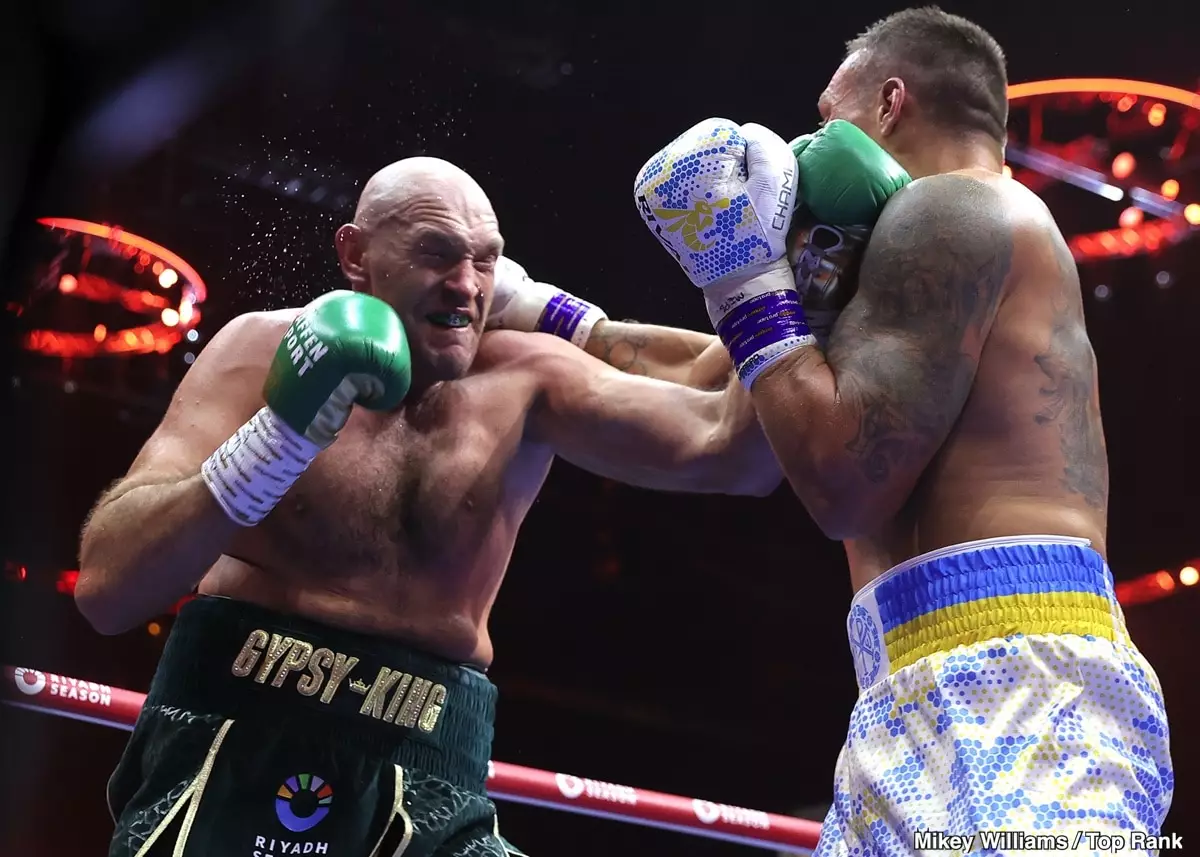As Tyson Fury gears up for his highly anticipated rematch with Oleksandr Usyk, scheduled for December 21st, he has made headlines not only for his boxing prowess but also for his unabashed focus on financial gain. Fury, the former WBC heavyweight champion with a professional record of 34-1-1, recently stated that maximizing his earnings is his primary objective as he progresses through his career. This candid admission raises eyebrows, particularly concerning its implications on his mental preparation for an opponent who is currently seen as a favorite in the upcoming bout.
Fury’s assertion—that he’s primarily in boxing for the “dough”—can be construed as a preemptive strategy. By openly discussing money, he appears to be deflecting attention away from the potential difficulties he may face in the ring against Usyk, the reigning WBA, WBC, and WBO champion with an immaculate record of 22-0. Such bravado surrounding financial ambitions may serve as a protective emotional barrier against the inevitable pressure of the rematch.
Critically speaking, an athlete’s motivation can have far-reaching implications on their performance. By framing his narrative around financial success, Fury seems to establish a kind of psychological cushion for himself in the event of a loss. Rather than solely focusing on the fighter-versus-fighter dynamic, his remarks suggest that he may not be mentally primed for battle. Instead, he appears to be searching for justification for his career choices and, perhaps, anticipating the potential anguish of defeat.
The 36-year-old’s financial disclosure, claiming to possess around $200 million, often elicits mixed reactions. While some may view this as a form of transparency, others suspect it to be an excuse to mask deeper insecurities. It hints at a possible inner conflict; while striving for financial independence, there lies the unquantifiable value of legacy and respect in the sport.
Fury’s perspective can also be seen as a dangerous gamble. The commitment to financial motives, especially in a sport demanding peak physical and mental conditioning, could distract him from the challenge at hand. In high-stakes boxing, where outcomes are often determined by a split second of decision-making or an errant punch, such distractions may cost dearly. When entering the ring, the athlete’s focus must be sharply honed on the opponent, not overshadowed by monetary considerations.
In interviews, Fury has asserted that while he recognizes the business aspect of boxing, once the bell rings, the fight takes precedence. However, with the weight of such pronounced financial motivations, it raises the question of whether this mindset can genuinely coexist with the unyielding determination essential for high-level competition.
Tyson Fury’s unabashed focus on financial gains calls into question the interplay between motivation, mental preparedness, and performance in boxing. While his transparency about earnings may resonate with some, it provides a unique lens through which to analyze his psychological state as he prepares for a challenging rematch against Usyk. As the fight approaches, it will be revealing to see if this financial narrative enhances or hinders his performance inside the ring. Only time will tell, but the stakes are undeniably high, both financially and in terms of legacy.

